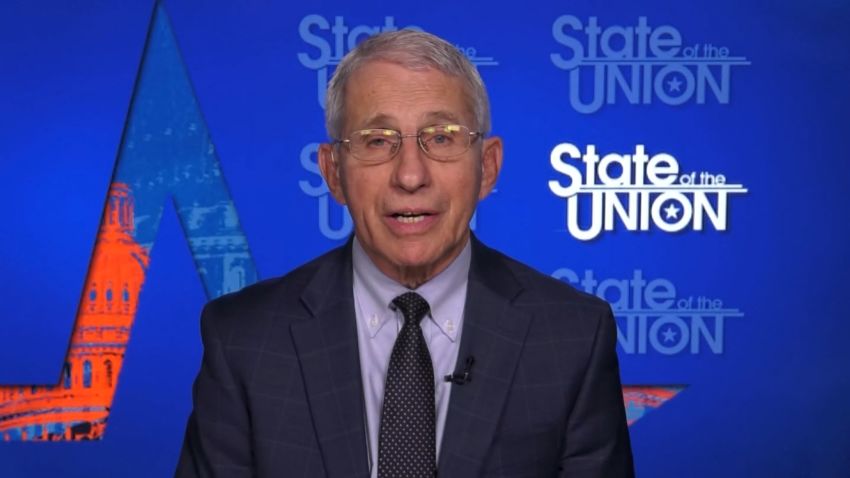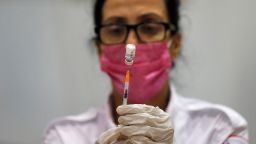Editor’s Note: Rebecca Katz is a professor and director of the Center for Global Health Science and Security at Georgetown University. Devi Sridhar is a professor and chair of Global Public Health at the University of Edinburgh Medical School. The opinions expressed in this commentary are their own. Read more opinion at CNN.
Preparing for the next pandemic should be, in some ways, easy. We know the factors that contribute to the emergence of new biological threats – interactions between animals, humans and the environment, exacerbated by climate change, globalization and the evolution of viruses.


We know, too, that there are gaps in our existing public health and healthcare systems around the world, as well as challenges governing information sharing, intellectual property rights, supply chain logistics and manufacturing capacity. And we know that the scientific community, when appropriately resourced, can rapidly develop drugs and vaccines.
What is required now is harnessing the political will, while it still exists, and the finances to strengthen preparedness and response for the next biological threat.
With the emergence of Omicron, we are reminded that some of our global systems have improved, while some of the systems we would have hoped were already in place almost two years in – like universal screening at borders, ubiquitous rapid diagnostic tests, and equitable vaccine distribution – seem to indicate struggle at every turn.
Vaccines, therapeutics and diagnostics
It is natural to suggest that we must invest in the development of new therapeutics and vaccines – but this is a lot easier said than done. In order to develop new platforms for diagnostics, rapid sequencing of new biological threats, robust manufacturing capacity, and a process to widely and equitably distribute products, we must start thinking more critically about how to change or strengthen our policies to facilitate these goals.
The current aim is to go from the sequencing of a new biological threat to a safe and effective vaccine within 100 days. To accomplish this, we need a system that supports sequencing of viral threats as part of early detection, followed by rapid sharing of data.
The global community would then need the capacity to manufacture sufficient quantities of drugs or vaccines to meet the needs of large populations and ensure systems are in place to distribute products to every corner of the world. Without starting to think through how our policies can facilitate the development and distribution of these products, our goal of addressing future viral threats will be out of reach.
Global norms and standards governing disease response
Strengthening our international standards for disease response starts with ensuring compliance with the international agreements we already have in place, like the International Health Regulations, to make them more effective in addressing evolving global challenges. This will allow us to better forecast disease outbreaks, share information, engage in travel and trade, undertake relevant health investigations, govern intellectual property rights, and support equity and human rights.
The International Health Regulations should be amended to address the World Health Organization’s processes for rapidly alerting the world to evolving public health crises. Here, too, there is no easy answer or policy solution, but diplomats and governmental public health experts from around the world are meeting as part of a WHO working group on preparedness and response to negotiate updated language to the agreement.
Alongside improvements to existing international agreements, nations will spend the next few years steeped in negotiations over what a new international agreement on pandemics should encompass. Draft articles should focus on the equitable distribution of drugs and vaccines, access, disease information and benefits for sharing such information, and language that acknowledges the link between disease outbreak, animal health and environmental action.
Financing preparedness and response
Sustained, predictable financing for both pandemic preparedness and response is essential to getting ahead of the next pandemic. Financing must be able to support national and subnational resources as well as fund global efforts, like research and development.
The G20 has been leading discussion on what this could look like and nations must collectively decide if and how to create a new financing mechanism, how to govern distribution of funds and how to raise the capital. Innovative sources of funding might include surcharges on global sporting events.
Workforce
Nations must invest in people and expand their public health and healthcare workforces, which face shortages amid the current health crisis. A well-staffed workforce is the most important part of our pandemic response, but one of the hardest things to commit to and fund, as it requires a long-term investment.
People need to be trained in multi-year programs, possibly through partnerships between academia and governments. Jobs and competitive pay must then be available when students graduate. And then individuals must be supported to ensure they are able to do their jobs well, while also taking care of themselves and their families.
What does strengthening pandemic preparedness mean right now?
For governments, pandemic preparedness means a commitment to building and sustaining national, sub-national and community public health capacity, from community health workers to diagnostic laboratories. For communities, it means continual public health messaging to ensure that people are educated about the basics of public health and understand why certain policy actions are taken.
National funders and philanthropies must identify promising health-related research groups deserving investment, while multilateral development banks like the World Bank have the important responsibility of ensuring funds can reach research institutions and communities, and be rapidly distributed if a new crisis emerges.
While the world is still fighting Covid-19, we must build off the existing response and make it even stronger for the next threat. As we learn lessons from our response to the public health crisis we currently face, we look forward with optimism. If the world is willing to put in sufficient time and attention, and governments commit to prioritizing global health security, we can strengthen public health capabilities around the world, reward collaboration and cooperation, and ensure the world is prepared for the next pandemic.




